World Association of Theoretical and Computational Chemists
The World Association of Theoretical and Computational Chemists (WATOC) is a scholarly association founded in 1982 "in order to encourage the development and application of theoretical methods" in chemistry, particularly theoretical chemistry and computational chemistry.[1] It was originally called the World Association of Theoretical Organic Chemists,[1] but was later renamed the World Association of Theoretically Oriented Chemists,[3] and in 2005 renamed once more to the World Association of Theoretical and Computational Chemists.[1]
| Abbreviation | WATOC |
|---|---|
| Formation | 1982[1] |
| Purpose | promoting the field of theoretical and computational chemistry[2] |
President | Peter Gill |
| Website | watoc |
Conferences
WATOC organizes a triennial world congress with over 1,000 participants in last years.[1][4]
| # | Name | Date | Year | City | Country | Organizer | |
|---|---|---|---|---|---|---|---|
| 1 | WATOC-1987 | August 12–18 | 1987 | .jpg.webp) |
Budapest | Hungary | Imre Csizmadia |
| 2 | WATOC-1990 | July 8–14 | 1990 |  |
Toronto | Canada | Imre Csizmadia |
| 3 | WATOC-1993 | July 18–25 | 1993 | 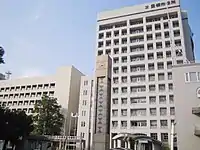 |
Toyohashi | Japan | Keiji Morokuma |
| 4 | WATOC-1996 | July 7–12 | 1996 | 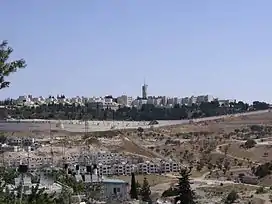 |
Jerusalem | Israel | Amiram Goldblum |
| 5 | WATOC-1999 | August 1–6 | 1999 | London | UK | Mike Robb Henry Rzepa | |
| 6 | WATOC-2002 | August 6–9 | 2002 | .jpg.webp) |
Lugano | Switzerland | Hans-Peter Lüthi |
| 7 | WATOC-2005 | January 16–21 | 2005 | Cape Town | South Africa | Kevin Naidoo | |
| 8 | WATOC-2008 | September 14–19 | 2008 | Sydney | Australia | Leo Radom | |
| 9 | WATOC-2011 | July 17–22 | 2011 | 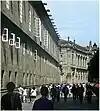 |
Santiago de Compostela | Spain | Manuel Yáñez Otilia Mó |
| 10 | WATOC-2014 | October 5–10 | 2014 | 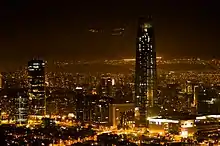 |
Santiago de Chile | Chile | Alejandro Toro-Labbé |
| 11 | WATOC-2017 | August 27 – September 1 | 2017 | 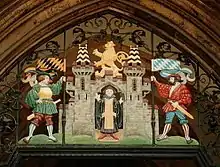 |
Munich | Germany | Christian Ochsenfeld |
| 12 | WATOC-2020 | August 16 – 21 | 2020 |  |
Vancouver | Canada | Russell J. Boyd |
| 13 | WATOC-2025 | June 22 – 27 | 2025 |  |
Oslo | Norway | Trygve Helgaker |
Awards
The association awards two yearly medals: the Schrödinger Medal to one "outstanding theoretical and computational chemist",[5] and the Dirac Medal to one "outstanding theoretical and computational chemist under the age of 40".[6]
Recipients of the Dirac Medal
Source: WATOC
- 1998: Timothy J. Lee
- 1999: Peter M. W. Gill
- 2000: Jiali Gao
- 2001: Martin Kaupp
- 2002: Jerzy Cioslowski
- 2003: Peter Schreiner
- 2004: Jan Martin
- 2005: Ursula Röthlisberger
- 2006: Lucas Visscher
- 2007: Anna Krylov
- 2008: Kenneth Ruud
- 2009: Jeremy Harvey
- 2010: Daniel Crawford
- 2011: Leticia González
- 2012: Paul Ayers
- 2013: Filipp Furche
- 2014: Denis Jacquemin
- 2015: Edward Valeev
- 2016: Johannes Neugebauer
- 2017: Francesco Evangelista
- 2018: Erin Johnson
- 2019: Satoshi Maeda
- 2020: Alexandre Tkatchenko
- 2021: Edit Matyus
- 2022: Katharina Boguslawski
List of presidents
Presidents of WATOC:[1]
| # | Name | First year | Last year | |
|---|---|---|---|---|
| 1 |  |
Imre Gyula Csizmadia | 1987 | 1990 |
| 2 | 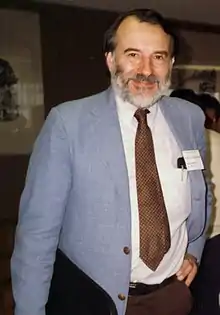 |
Paul von Rague Schleyer | 1990 | 1996 |
| 3 |  |
Henry F. Schaefer, III | 1996 | 2005 |
| 4 |  |
Leo Radom | 2005 | 2011 |
| 5 |  |
Walter Thiel | 2011 | 2017 |
| 6 |  |
Peter Gill | 2017 | 2025 |
External links
References
- "WATOC - History". World Association of Theoretical and Computational Chemists. 2015. Retrieved 22 March 2015.
- "WATOC - Home". World Association of Theoretical and Computational Chemists. 2015. Retrieved 22 March 2015.
- For instance, in 2005 it was called "World Association of Theoretically Oriented Chemists" as can be seen in the poster for WATOC-2005 congress: "WATOC-2005. Modelling Structure and Reactivity. 7th World Congress of the World Association of Theoretically Oriented Chemists" (PDF). World Association of Theoretical and Computational Chemists. 2015. Retrieved 22 March 2015.
- "WATOC - Congress". World Association of Theoretical and Computational Chemists. 2015. Retrieved 22 March 2015.
- "WATOC - Schroedinger". World Association of Theoretical and Computational Chemists. 2015. Retrieved 22 March 2015.
- "Dirac - medal". World Association of Theoretical and Computational Chemists. 2015. Retrieved 22 March 2015.